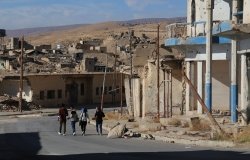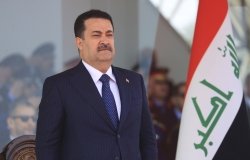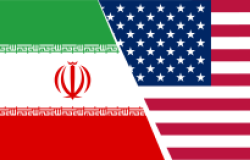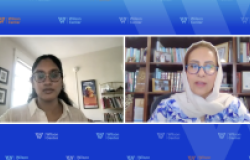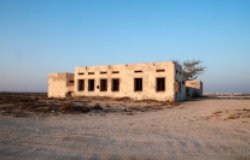"Hizbollywood. Hizbollah's Information War Viewed from Lebanon"
Marwan Kraidy, Assistant Professor of International Relations and International Communication, School of International Service at American University and a former Woodrow Wilson Center Fellow
Overview
Marwan Kraidy, director of the Arab Media in Public Life Project at the American University's School for International Service, and former Woodrow Wilson Center fellow, discussed Hizbollah's use of their television station al Manar as a tool in their broader propaganda campaign during last summer's war with Israel. Media and communication play a central role in Hizbollah's strategy for both their militant and pragmatist wings, and Al Manar serves and important role in that it is able to underline the party's message while effectively addressing multiple audiences throughout the Arab World.
Al Manar's coverage of the war in Lebanon drew large audiences outside of their normal viewing range. During the period of July 1-15, the station was ranked 81st among satellite stations in the Middle East, while during the period of July 15-28 it shot up to number 8. Kraidy outlined several reasons for this dramatic change in position during the war with Israel, and ways in which Hizbollah utilized the station's increased popularity to reinforce its political message. As a means of underlining the Party's strength, the channel focused on the physical survival and resilience of its reporters and its buildings. Despite the fact that the station's headquarters was reduced to rubble by the fourth day of bombing, broadcasting was only interrupted two or three times, the longest period of time being three minutes. The programmers expertly used enemy media to underline major themes in Hizbollah's campaign to justify the war. Clips in which Israeli citizens expressed doubt about the operation in Lebanon were pulled from Israeli programs and used as powerful motivators for the Lebanese public. Seymour Hersh's articles in the New Yorker magazine describing Israel's war in Lebanon as a test case for a U.S. led war in Iran were used as a means of strengthening the party's theme that Hizbollah was fighting an "imposed war, not a war of choice". The station's reporting also remained heavily based in fact, often underselling the achievements of Hizbollah during the campaign, and relied on visual images to impart emotion. In doing so, al Manar gained credibility among wide audiences for the truthfulness its reporting, and was viewed as a reliable source of information despite its sectarian ownership.
Al Manar utilized the visual media to reach a broad range of diverse audiences. The use of Hebrew captions and Google Earth maps of specific locations within Israel targeted Israeli audiences, playing up their fears of Hizbollah's capabilities. While the station's main focus was the Arabic speaking world, some clips included clips from speeches given by U.S. and European leaders. The use of music, nationalist rhetoric and the visual references to national and sectarian flags as well as a wide range of religious symbols served to include all of the sects of Lebanese society under the umbrella of Hizbollah's audience. Kraidy concluded by stating that the media coverage launched by al Manar was just one branch of Hizbollah's overarching propaganda campaign, which orchestrated the speeches of Hassan Nasrallah with military actions and the media campaign to effectively portray the party's message that they were fighting a war for all of Lebanon, not simply a sectarian battle.
Middle East Program
Drafted by Carmen León
Hosted By

Middle East Program
The Wilson Center’s Middle East Program serves as a crucial resource for the policymaking community and beyond, providing analyses and research that helps inform US foreign policymaking, stimulates public debate, and expands knowledge about issues in the wider Middle East and North Africa (MENA) region. Read more
Thank you for your interest in this event. Please send any feedback or questions to our Events staff.

